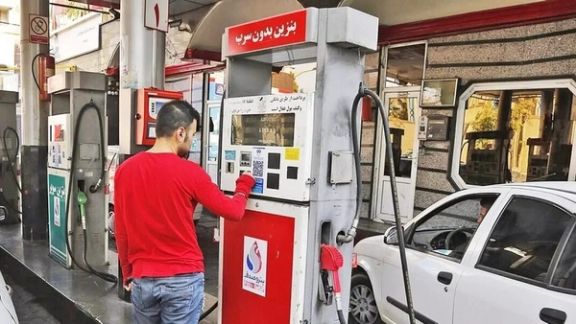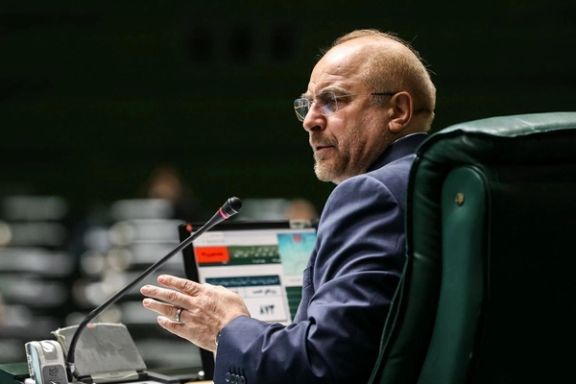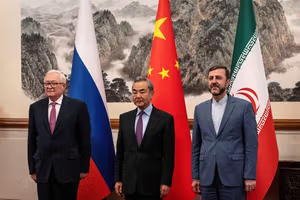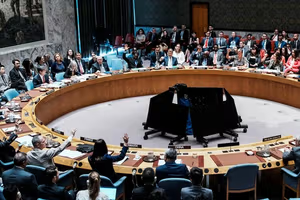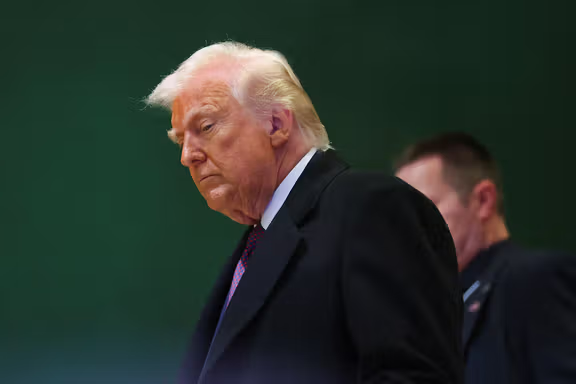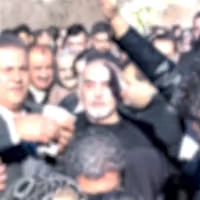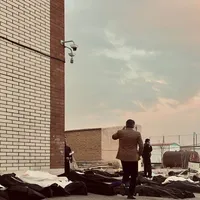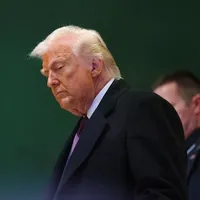"My father had become a thorn in their eye, so they eliminated him," Faezeh Hashemi Rafsanjani said in a YouTube interview.
"Killing him wasn’t the work of Russia or Israel. He sided with the people and spoke out, and they felt he was in their way — so he had to be removed," she added.
On January 8, 2017, it was officially announced that the president of Iran from 1989 to 1997 had suddenly died after swimming at a pool belonging to the Expediency Discernment Council he chaired.
Officially, his death was attributed to a heart attack, but suspicions quickly arose, fueled by Rafsanjani’s complex political legacy.
In her interview on Tuesday, Rafsanjani's daughter blamed the highest echelons of power in the Islamic Republic for her father's death.
"Who did murder your father?" the interviewer asked.
"Who did murder Amir Kabir?" she replied, referring to the widely respected Prime Minister of Qajar Iran who was murdered by the command of Naser al-Din Shah in 1852.
Rafsanjani's family has consistently voiced concerns that he may have been murdered, citing what they have described as several suspicious factors.
These include delays in transporting him to the hospital, the lack of access to CCTV footage from both the swimming pool and his office, the absence of a post-mortem examination despite their requests, a hurried burial and the disappearance of his diaries and will from his office safe shortly after his death.
In 2019, Rafsanjani’s other daughter, Fatemeh Hashemi, said in an interview that two months before her father's death, two people approached her at her university, warning her father “would be killed in a way that would make it appear a natural death.”
'Bigger Satan'
The official investigation, led by Ali Shamkhani, then Secretary of the Supreme National Security Council, concluded that Rafsanjani's death was "completely natural, without any ambiguity."
Rafsanjani had played an instrumental role in the accession of Ali Khamenei to leadership in 1989 by convincing the Assembly of Experts that being a religious source of emulation (marja’-e taghlid) -- a qualification that Khamenei lacked -- was not considered as a leadership requirement.
He also claimed that the late leader, Ruhollah Khomeini, had once suggested Khamenei’s name as his successor.
Khamenei and Rafsanjani, however, had a significant falling out when Khamenei publicly endorsed his opponent Mahmoud Ahmadinejad for president in 2009.
The Supreme Leader said Ahmadinejad's views were "closer" to his own than those of any other candidate, including his "friend of fifty years," Rafsanjani.
“After 2016 (Rafsanjani) openly said here and there that he had made a mistake in choosing Khamenei (as leader),” Berlin-based political analyst Mehdi Mahdavi-Azad told Iran International.
Pressures increased on him around that time, Mahdavi-Azad added citing people close to Rafsanjani including his daughters and his advisor Gholam-Ali Rajaei, and there had been warnings of a threat to his life.
Mahdavi-Azad also highlighted a speech by Khamenei on the day Rafsanjani died, which appeared to criticize him and question his revolutionary credentials.
Playing with Rafsanjani's first name, Akbar, which means bigger or older, Khamenei suggested that the Islamic Republic could be harmed if a “reprobate or misled brother” turned out to be the “bigger Satan” and played the role of the real Satan in misleading the people.
“We must be vigilant, this person is our enemy, too,” he said.
During the funeral prayers for Rafsanjani, Khamenei's omission of a sentence that traditionally attests to God that the deceased had displayed nothing but "benevolence and goodness" during his life attracted attention.



